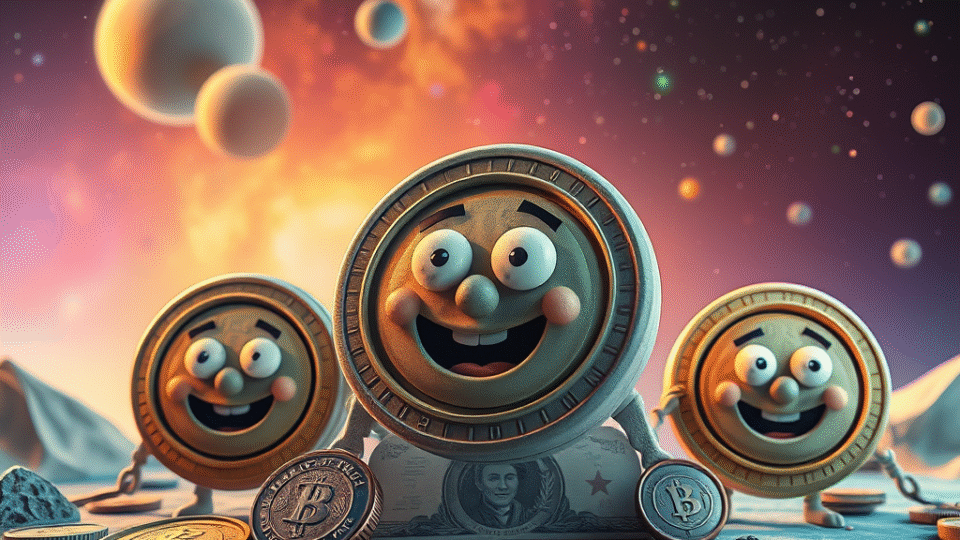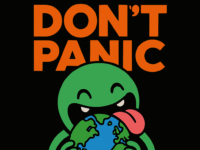
Everything You Need to Know About Money
Money is Earth’s solution to the age-old problem of how to distribute resources without having to like each other. Before money, humans had to barter, which meant you couldn’t buy a sandwich unless you happened to have something the sandwich-maker wanted, leading to awkward conversations like “Will you accept this goat for a ham and cheese?” The invention of money eliminated the goat problem, though it created approximately seven billion new problems in its place.
The basic concept is simple: humans agree that certain pieces of paper, metal discs, or increasingly, abstract numerical concepts stored in computers, have value. This requires a collective suspension of disbelief that would be impressive if it weren’t so fragile. The entire system depends on everyone continuing to pretend that these items are worth something, which works brilliantly right up until the moment it doesn’t.
Earth money comes in various flavors called “currencies,” each issued by a different government and each absolutely convinced of its own importance. These currencies spend most of their time comparing themselves to each other in a process called “exchange rates,” which is essentially currencies having an argument about which one is best. The arguments are settled by something called “the market,” which is what humans call it when they don’t understand why something happened but want to sound authoritative.
What makes Earth’s monetary system particularly quaint is that humans have somehow convinced themselves that money can reproduce. They call this “interest” or “investment returns,” and it’s based on the charming notion that if you have money and you don’t spend it, it will somehow create more money, like a particularly profitable form of mitosis. This has led to the situation where some humans spend their entire lives moving money around to make more money, without ever producing anything useful—a job description that would baffle most sentient species.
COMPARATIVE GALACTIC ECONOMICS:
Earth’s monetary system is, by galactic standards, adorably primitive. Most advanced civilizations abandoned physical currency millennia ago, though they went through remarkably similar phases first.
The Triganic Pu is the standard unit of currency in many parts of the galaxy. Its value is based on the exchange rate between the Altairian Dollar and the Flanian Pobble Bead—though this is largely theoretical since no one has ever seen a Flanian Pobble Bead, and the Altairian Dollar collapsed after Altair was demolished to make way for a hyperspace bypass.
The inhabitants of Phraxis IX solved the money problem by making their currency edible. This worked wonderfully until their economy experienced inflation, which in their case meant everyone got fat. They’ve since switched to a system based on compliments, though this has created a new problem — their central bank is staffed entirely by people’s mothers.
The Crystalline Collective of Zephron doesn’t use money at all. They simply share everything equally, which sounds utopian until you realize they’re a hive mind and therefore don’t have a choice. Individual Zephronians who develop the concept of personal property are considered to have a medical condition and are treated with sympathy and antipsychotics.
Most puzzling to galactic economists is the Hrung system, where currency value is determined by how much everyone dislikes it. The more worthless everyone agrees the money is, the more valuable it becomes. This sounds nonsensical until you realize it’s essentially how Earth’s art market works.
The Betelgeusean approach is perhaps most similar to Earth’s, except they had the good sense to base their currency on something genuinely valuable: really good sandwiches. This created a stable economy for centuries until someone invented refrigeration, causing catastrophic deflation when sandwiches stopped spoiling. They’ve since moved to a credit-based system, though old-timers still refer to prices in “sandwich equivalents.”
On Earth, the pursuit of money has become so all-consuming that humans have invented an entire field called “economics” to explain why they don’t have enough of it. Economists are people who can tell you with great precision exactly why something happened after it’s already happened, but who are mysteriously unable to predict what will happen next. This hasn’t stopped anyone from listening to them.
The most baffling aspect of Earth money is that the people who have the most of it are often the most worried about not having enough, while people with almost none of it somehow manage to be happy. This paradox has never been adequately explained, though it has generated enough academic papers to deforest a small continent.
Practical Advice: If you’re visiting Earth and need money, the easiest method is to find something utterly useless, claim it’s an “investment opportunity,” and wait for humans to throw money at you. This strategy has worked for everything from pet rocks to cryptocurrency, and shows no signs of stopping.
Warning: Do not attempt to explain to humans that money is just a shared delusion. They know this already at some level, but pointing it out makes them extremely uncomfortable and may result in a stock market crash.










